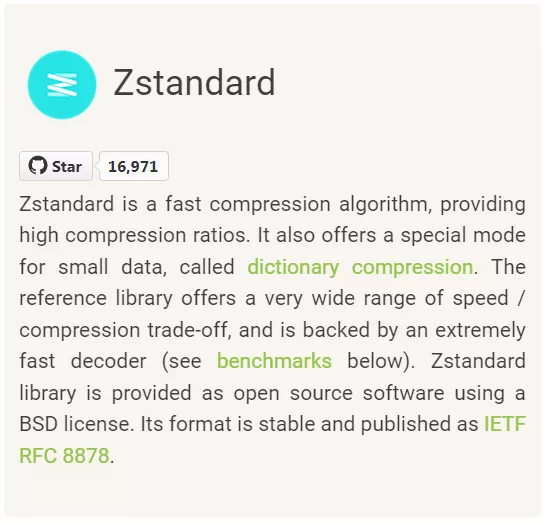Ahead of the release of the first candidate Version (RC1) this week, Greg kroah Hartman also began to submit functional query requests for various fields of the new kernel he is responsible for supervising to Linux 5.19 last week Along with the new kernel driver comes the long-awaited firmware level zstd compression support

(via GitHub)
It is reported that the zstandard real-time data compression algorithm developed by Facebook has the characteristics of fast decompression and disk space saving.
Over the years, Linux kernel patches have been proposed in succession to add firmware processing support for zstd compression and hope to replace the existing compression schemes represented by XZ.
In April, the zstd compression firmware finally began to appear. While helping to save a lot of disk space, it still has the feature of fast decompression dynamically completed by the kernel.
With the arrival of Linux 5.19-rc1, the The firmware file at the end of ZST can finally be decompressed by the firmware loader of Linux kernel.
Explain Like I'm 5 ZSTD - Meta Open Source(via)
Another significant core driver change of Linux 5.19 is that users can start firmware update through sysfs. As a change led by Intel, it aims to easily refresh firmware for FPGA PCIe.
Prior to this, firmware updates were initiated only from kernel space. With the emergence of sysfs, an adaptive interface, it will be easier to start the update if necessary with the help of user space.
The third additional feature update mentioned by Phoronix is the ability to report the physical location of devices on the system - such as specific ports - which is particularly useful when connecting multiple identical devices to the system.
Even though some devices have disclosed their physical locations through ACPI, it is certain that more bus devices will support this new attribute of disclosing physical locations in the future.